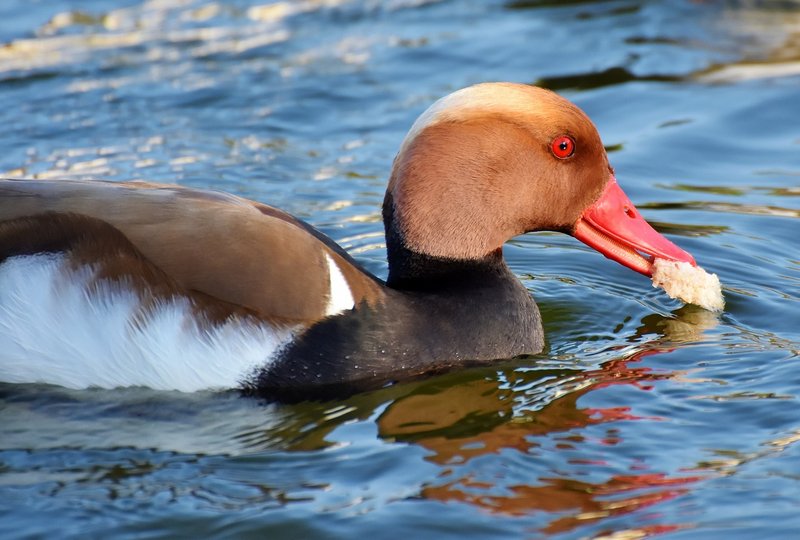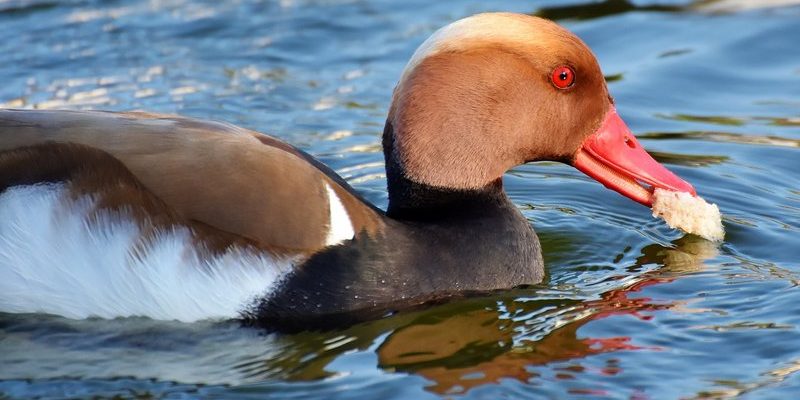
Conservation isn’t just about saving species; it’s about preserving the delicate balance of our ecosystems. Ducks play a vital role in the environment, helping with everything from pest control to seed dispersal. They’re like nature’s busy little custodians, keeping things in check. Understanding how we’re working to protect them is essential for anyone who enjoys the outdoors or simply appreciates these feathered friends.
Understanding Duck Habitats
Before we jump into the conservation efforts, it’s important to know where ducks call home. Ducks thrive in various habitats, including wetlands, marshes, and ponds. These areas are crucial for their survival because they provide food, nesting sites, and security from predators. Wetlands act like nature’s sponge, absorbing excess rainwater and filtering pollutants, which is beneficial for both ducks and humans.
Unfortunately, many of these habitats are disappearing. Urban development, pollution, and climate change are all taking a toll. Just think about it: when we build on wetlands, we not only remove homes for ducks but also affect the entire ecosystem. That’s why understanding and preserving duck habitats is a big part of conservation efforts.
Conservation groups are focused on restoring and protecting these critical habitats. For example, organizations like Ducks Unlimited work tirelessly to secure funding for wetland restoration projects. They not only rehabilitate existing wetlands but also create new ones. By doing this, they ensure that ducks have a safe place to thrive, even in the face of environmental changes.
Key Conservation Organizations
Several organizations are doing incredible work to protect ducks and their habitats. One of the most prominent is Ducks Unlimited. Founded in 1937, this organization has been at the forefront of wetland conservation. They focus on habitat restoration, research, and education, ensuring that ducks have the resources they need to survive and flourish.
Another notable group is the National Audubon Society. While they focus on all birds, they have specific programs addressing waterfowl habitats. Their initiatives aim to protect critical areas and promote sustainable practices among hunters and birdwatchers alike. By engaging the community, they help spread awareness about the importance of protecting ducks and their homes.
Lastly, conservation efforts often involve local communities. Many grassroots organizations focus on educating people about the importance of wetland conservation. They hold events, workshops, and volunteer days where folks can get their hands dirty planting native species or cleaning up local ponds. Engaging the community is vital, as it helps build a network of support for ongoing conservation work.
The Role of Legislation in Duck Conservation
Legislation plays a crucial role in duck conservation. Many countries have laws protecting migratory birds, which include ducks. The Migratory Bird Treaty Act in the U.S. is one such example. It prohibits the hunting and capturing of migratory birds without proper permits, helping to ensure their populations remain stable.
Beyond hunting regulations, conservationists advocate for stronger environmental protections. Ensuring that wetlands and natural habitats are preserved requires a mix of federal and state legislation aimed at environmental conservation. By lobbying for laws that protect these areas from development and pollution, conservationists work to create a safer environment for ducks.
Moreover, international treaties like the Ramsar Convention focus on the protection of wetland habitats globally. Since ducks migrate across borders, these treaties help reinforce the importance of maintaining wetlands no matter where you are in the world. Stronger legislation means a better chance of ensuring that ducks have safe places to migrate and breed.
Community Involvement in Duck Conservation
You might be wondering how you can contribute to duck conservation efforts. One of the most impactful ways is through community involvement. Many local organizations offer volunteer opportunities that allow you to engage directly in conservation work. This could range from planting native vegetation in wetlands to participating in bird counts during migration seasons.
Educating yourself and others about the importance of ducks and their habitats is another critical step. Hosting events or discussions in your community can raise awareness and inspire action. You could organize a local clean-up at a nearby pond or wetland and encourage family and friends to join in. Not only does this protect the environment, but it also strengthens community bonds.
If you’re into birdwatching, consider joining a local bird club. These groups often have programs dedicated to the study and protection of local species, including ducks. By participating, you not only enjoy the company of fellow bird lovers but also contribute to ongoing conservation efforts.
Challenges to Duck Conservation
Despite all the hard work being done, duck conservation faces several challenges. One of the biggest issues is climate change, which alters weather patterns and impacts habitats. For instance, rising temperatures can lead to droughts, which may dry up the wetlands that ducks rely on. These changes make it harder for ducks to find food and nesting sites.
Additionally, pollution is a persistent threat. Runoff from agriculture can lead to nutrient pollution in wetlands, causing harmful algal blooms that detrimentally affect water quality. When ducks swim and feed in polluted waters, they can become ill, which impacts their populations. Addressing pollution at its source through better agricultural practices is vital for improving wetland health.
Habitat loss also continues to be a significant concern. As urban areas expand, wetlands are often drained or filled in for development. This not only eliminates homes for ducks but also disrupts the natural filtration systems that wetlands provide. If we don’t address this issue, we risk losing not only the ducks we cherish but entire ecosystems that provide countless benefits.
How You Can Make a Difference
So, what can you do to help protect ducks? Start small. One of the easiest ways to contribute is by making environmentally conscious decisions in your daily life. Use fewer plastics, support local conservation efforts, and always dispose of trash responsibly. Small changes in your habits can lead to significant improvements in local environments.
Consider donating to or volunteering with organizations focused on wetland conservation. Whether it’s Ducks Unlimited or smaller local groups, your support can help fund vital restoration projects and community education efforts. Every little bit helps, and being part of a larger movement can be incredibly rewarding.
Lastly, if you enjoy birdwatching, take the time to learn about the different duck species in your area. By becoming an advocate for these birds, you can share their stories and importance with others. Use social media platforms to highlight conservation efforts and engage your friends and family in discussions about environmental protection.
The Future of Duck Conservation
Looking ahead, the future of duck conservation relies on a collective effort. By raising awareness, educating ourselves and others, and supporting habitat restoration projects, we can ensure that these wonderful birds thrive for generations to come.
The good news is that more people are recognizing the importance of conservation, and many communities are becoming involved in local efforts. You’ll find folks working together to clean wetlands, restore habitats, and engage in responsible birdwatching practices. The momentum is growing, and it’s inspiring to see how committed people can be when it comes to preserving nature.
In the end, ducks are not just cute visitors to our ponds; they play a crucial role in maintaining ecological balance. Let’s work together to protect them, ensuring that the delightful sound of their quacking continues to fill our natural spaces for years to come.

